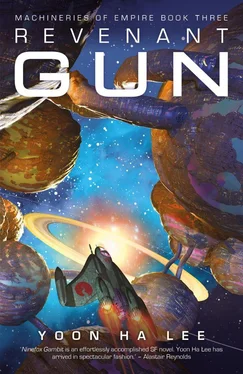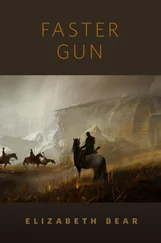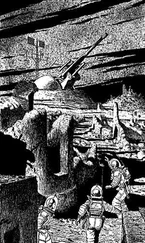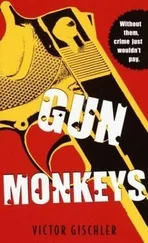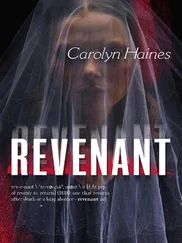Jedao attempted to check Dhanneth, disliking the mood in the room. “I’m done,” Jedao said to Kujen. “Take mine instead.”
The Kel tensed further, except for Meraun, who reached for another roll as she looked at Jedao, Kujen, and Dhanneth with the air of an interested festival-goer, and a captain at a lower table who was compulsively stabbing a recalcitrant cucumber with her chopstick.
“It’s not necessary, sir,” Dhanneth said. This should have settled the matter. Instead, the tension increased.
“I’ll judge that,” Jedao said. He had meant to speak mildly. The way Dhanneth’s dark face stilled told him he had failed.
Kujen intervened. “I won’t make a habit of this,” he said to Jedao, “because high table is high table, but I need to speak to you and it can’t wait.”
Jedao didn’t believe that in the slightest. He would have liked to stay and fumble his way through the rest of dinner despite the prickly atmosphere, because he couldn’t spend the rest of the voyage avoiding his own officers. On the other hand, he couldn’t refuse the hexarch, either. He excused himself. The hush that followed them was frosty.
Kujen’s own silence made Jedao edgy all the way back to Kujen’s conference room. Kujen paused in the doorway after it opened. Jedao looked around the room, which was appointed with fantastic models of buildings, all bird-curves and starry angles and tiny glittering windows. Then Kujen stalked into the room and pivoted on his heel. Jedao entered and sank to his knees in the full obeisance to a hexarch.
Kujen sat on his haunches and laid a hand on Jedao’s shoulder, feather-light. He peered into Jedao’s face. “I had assumed that your lack of research on the topic meant that you remembered after all,” he said.
“Remembered what?” Jedao said. And what did this have to do with dinner?
“I was listening in on your idea of light conversation,” Kujen said. “People are afraid that if they upset you, you’ll slaughter them. Get up and let’s sit in actual chairs. My knees are not fond of deep bends anymore.”
Kujen leaned back in a chair upholstered in violet-black velvet. Jedao took the one across from him. It looked like someone had painted its platinum-colored snowflake-and-bird designs with a one-haired brush. How much luxurious furniture did Kujen own anyway? Jedao hoped he never took it for granted.
“Fine,” Jedao said, accepting the reprimand for what it was. “I’ll call up some documentaries. Or a book.” Being a general required a lot of paperwork, but he could schedule it in.
Kujen massaged his temples.
“All right,” Jedao said, “something I said bothered you. Explain it to me in words of one syllable.”
“So you don’t remember Hellspin.”
“Obviously not.”
“I am not used to this,” Kujen said, “and normally I am better at accounting for variables than this. But there’s a first time for everything.” He sounded displeased with himself. “Jedao, you’re not a blank sheet of paper, even if you can’t remember large chunks of your history. You have skills, you have preferences, you have flaws, a personality. The difference is that people who know their own past have a chance of figuring out their own failure modes and how to avert them, and most of them don’t manage that even so. As far as I can tell, you’re operating on instinct. You have no way to prepare for your own reactions.”
“You can’t hide the records from me forever,” Jedao said.
“Let’s start slow,” Kujen said. “You already know about the gloves, which are unavoidable, and the Deuce of Gears. There are also the threshold winnowers.”
“Threshold winnowers?”
“They’re bombs,” Kujen said, “that kill living things within the gate radius without damaging nonliving structures. The part that scares all the civilians is all the eyes and mouths that chew up the victims. That’s just cosmetic. Dead is dead.”
Jedao hid his revulsion. Kujen hadn’t mentioned whether this chewing up happened before or after the victims perished. He had a bad feeling he knew the answer to that one. “Your design?”
“Yes.”
Shit. “Are you going to let me have any?” Jedao asked, to gauge Kujen’s reaction.
Kujen didn’t answer that, which could mean either yes or no. “Next,” he said. “During Hellspin, once the massacre was underway, you went on a rampage on your command moth. You shot a bunch of staff and soldiers and so on with a Patterner 52. That’s—”
“I know what that is,” Jedao said. “What the hell was someone in the Kel military doing with a Shuos handgun?” Sure, you could print up ammunition for it special, but didn’t that sort of thing annoy Logistics?
“Special dispensation,” Kujen said, “as a courtesy to the Shuos.” His mouth curled in a sudden smile. “You were a known favorite of the Shuos heptarch.”
Jedao wasn’t sure he believed that. How could he have achieved that, anyway?
Kujen hadn’t finished speaking. “Anyway, it figures you’d recognize your signature gun. I’m sorry I couldn’t retrieve it for you, but the Shuos stole your gun collection a few decades ago just to piss off the Kel. I keep wondering if they mean to fence the lot, because the Shuos are notoriously always in danger of going broke. As far as I can tell, the collection is sitting in the Citadel of Eyes gathering dust, and I didn’t want to test Mikodez’s security.”
“I forgive you,” Jedao said, to cover his additional unhappiness at the idea that he’d have some reflexive attachment to a weapon he’d used to commit a massacre. “Is there anything else about Hellspin Fortress that I have a crushing need to know?”
“You weren’t sane when Kel Command retrieved you,” Kujen said. “Your memories from that period seemed to be hazy even before Cheris’s interference.”
Jedao turned his hands over and stared at the back of his gloves. He was used to them already. “Why did they retrieve me instead of executing me on the spot?”
“They wanted to figure out what had happened,” Kujen said. “You’d been loyal up to that point. It came as a complete surprise. After that, they decided they still had uses for you, so you never received a proper court-martial. It’s hard for people who aren’t familiar with the records to appreciate this. Remember, originally it wasn’t clear that you had been responsible for the slaughter. They thought it had been Lanterner agents, or another traitor.”
“I appreciate the lesson,” Jedao said. “So when you pulled me out of high table, it was because of the remark I made.” I hear our aim isn’t as good as yours.
“Yes,” Kujen said. “I advise you to do some more homework before the next high table.”
“Noted,” Jedao said.

CHAPTER TEN
“THERE IT IS,” Jedao said from the copilot’s seat. He was peering at the scan subdisplay. “Station Ayong Primary.”
In its time with Jedao and 1491625, Hemiola had been given free run of their vehicle, which Jedao called a needlemoth. “Free run” wasn’t saying much. According to 1491625, this moth had been designed for two humans. One human and two servitors still made for a tight squeeze.
Jedao had provisioned the needlemoth with the kind of supplies one might expect from a former assassin. Ration bars, whose labels declared their Kel origins. (“Some of these are rated for over two centuries,” Jedao said. “I hope never to put that to the test.”) Spare ecoscrubber filters and spare extravehicular suits. A very small box containing personal effects. Hemiola took the liberty of scanning it. 1491625 didn’t interfere. Within the box was an earring and old-fashioned watch decorated with a lot of gold-copper alloy. No explosives in the watch, although it couldn’t rule out the possibility that Jedao was hiding a compound more sophisticated than its outdated sensors could detect.
Читать дальше
